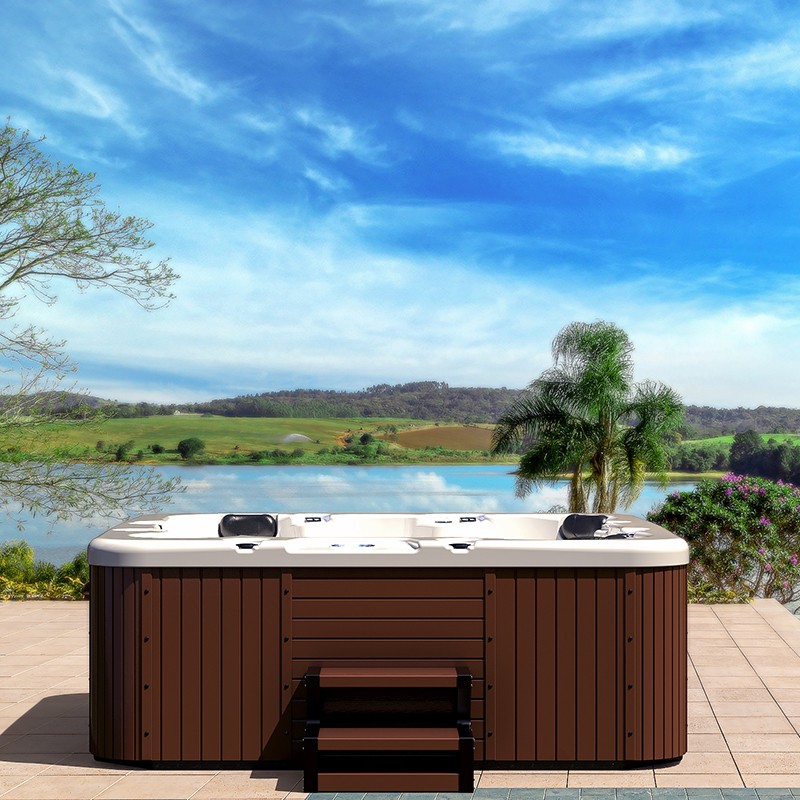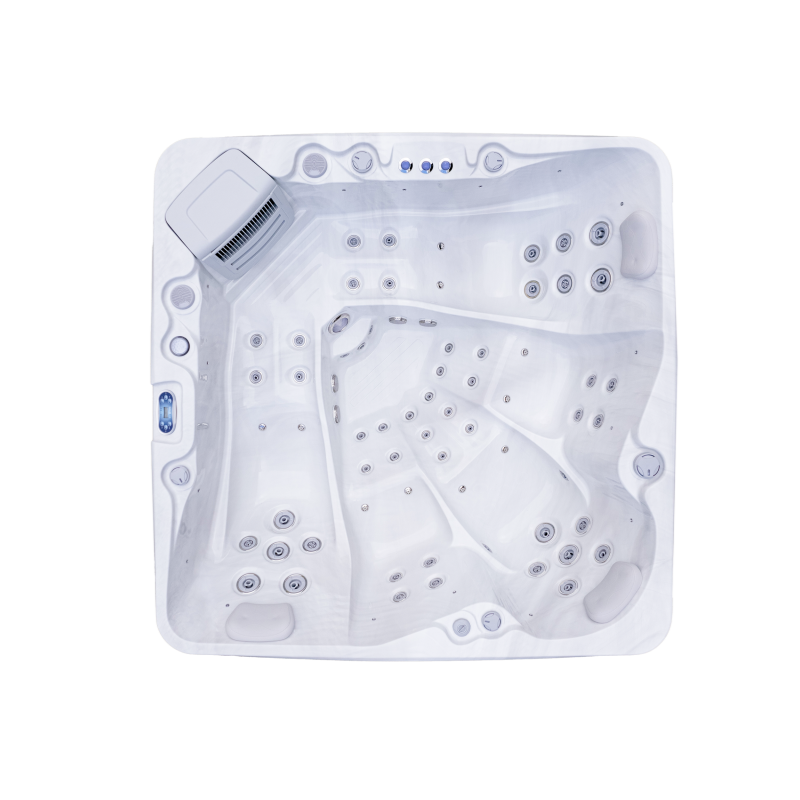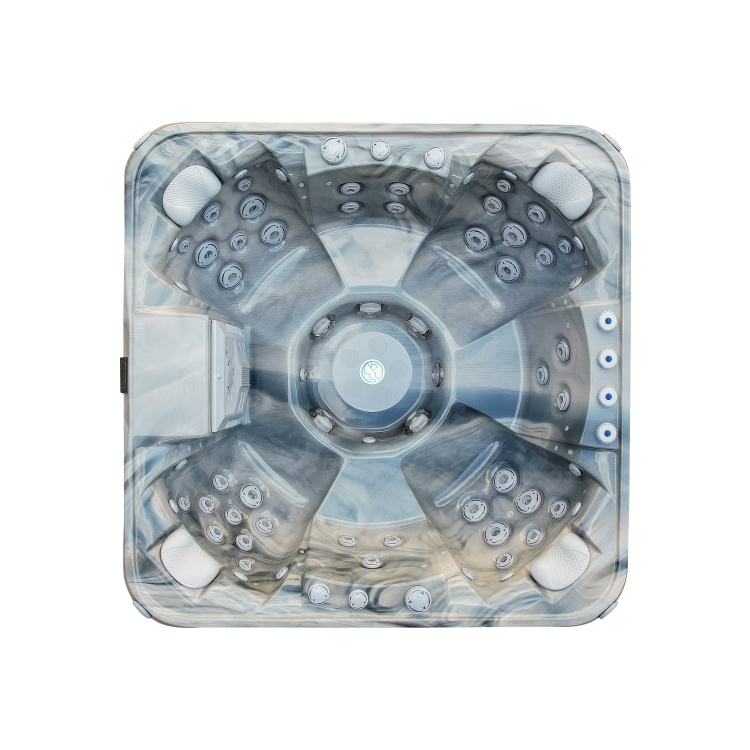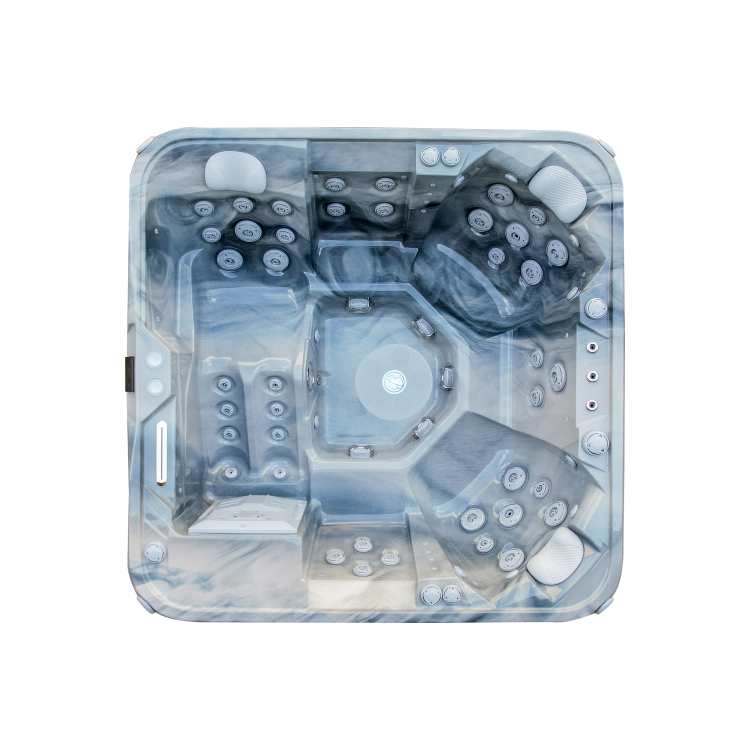Outdoor hot bathtubs have long been seen as a luxurious relaxation tool, whether at home or at a spa, people love to soak in hot water and enjoy a full body and mind relaxation. However, outdoor hot bathtubs are not only for relaxation, but also have potential health benefits, especially positive effects on the heart and cardiovascular system.
As people become more health conscious, more and more people are beginning to wonder: what are the benefits of outdoor hot bathtubs for the heart? Can it improve our cardiovascular health and even help prevent heart problems?
This article will take a deep look at the various benefits of outdoor hot bathtubs for the heart and cardiovascular system. Through scientific research and clinical analysis, we will reveal how outdoor hot bathtubs can improve overall health by regulating blood pressure, improving blood circulation, reducing stress, and providing a low-impact cardiovascular exercise.

Cardiovascular Benefits of Outdoor Hot Bathtubs
First, we need to understand the potential effects of outdoor hot bathtubs on heart health. Cardiovascular health is not just about the heart, but also involves the entire vascular system, including arteries, veins, and other organs responsible for transporting oxygen and nutrients to the body. Modern medicine has found that outdoor hot tubs can have a positive impact on the cardiovascular system in many ways.
Soaking in warm water produces an effect similar to low-intensity exercise. Studies have shown that soaking in a hot tub can cause blood vessels to dilate and heart rate to increase, thereby improving blood circulation and oxygen supply throughout the body. More importantly, this effect is low-impact and does not put too much pressure on joints and muscles like strenuous exercise, so hot bathtubs are particularly suitable for people who are not suitable for high-intensity exercise.
Next, we will explore the specific benefits of outdoor hot bathtubs on the cardiovascular system in detail from five aspects.
Improved blood circulation
Improved blood circulation is one of the most significant benefits of outdoor hot bathtubs. When you soak in hot water, the skin and tissues of the body are heated by the warm water, and the blood vessels expand accordingly. This is medically known as vasodilation. The result of vasodilation is that the blood flows faster, allowing more oxygen and nutrients to be delivered to various tissues and organs more efficiently.
For the heart, this improvement in blood flow is very beneficial. First, the increase in blood flow can reduce the workload of the heart because the heart does not need to expend extra effort to pump blood. Secondly, faster blood circulation also helps the body remove metabolic waste and carbon dioxide, further improving cell function and recovery.
In addition, good blood circulation can prevent the formation of blood clots. Long-term sitting or slow blood flow can cause blood clots, and outdoor hot bathtubs can effectively reduce the risk of venous thrombosis by promoting blood circulation, especially for those with a more sedentary lifestyle.

Blood pressure regulation
Many people may have doubts about the effect of outdoor hot bathtubs on blood pressure. Some people believe that soaking in hot water will increase heart rate and cause blood pressure to rise. In fact, although soaking in a hot bathtub does temporarily increase heart rate, its long-term effect on blood pressure is beneficial.
According to research, outdoor hot bathtubs regulate blood pressure in two stages. In the early stage, when the body enters the hot water, the heart rate will temporarily increase. This is due to the dilation of blood vessels caused by the hot water and the body's natural reaction to try to cool down. However, as the soaking time increases, the blood vessels further dilate and the blood flow becomes smoother, and blood pressure actually begins to decrease. Many studies have shown that outdoor hot bathtubs can help lower static blood pressure, which is especially helpful for those with mild hypertension.
In addition, outdoor hot bathtubs can reduce peripheral vascular resistance, which means that the heart does not have to work as hard to pump blood. Compared with drug treatment, soaking in hot water is a natural way to regulate blood pressure more gently and has no side effects.
Reduce stress and promote cardiovascular health
Psychological stress is one of the main factors that lead to heart disease and other cardiovascular diseases in modern life. Long-term high stress leads to increased levels of the stress hormone cortisol in the body, and high levels of cortisol can cause a series of health problems, including high blood pressure, arteriosclerosis, heart disease, etc.
Outdoor hot bathtubs help people effectively reduce stress by creating a relaxing environment. The soothing effect of warm water can completely relax the body and mind. When you soak in an outdoor hot bathtub, your body will naturally release endorphins, a chemical called "happiness hormone" that can reduce stress and anxiety. The increase in endorphins not only makes you feel happy, but also helps lower blood pressure, thereby reducing the burden on the heart.
In addition, the jet massage function in the outdoor hot tub can further relieve the body's tension. Relaxing the body's muscles can help relieve the constriction of blood vessels caused by stress, allowing blood flow to flow more smoothly, thereby helping to reduce the risk of heart attacks.

Improve sleep quality
Sleep is one of the important factors in maintaining heart health. Long-term lack of sleep is closely related to problems such as heart disease, obesity, and high blood pressure. Good sleep can help lower blood pressure, reduce stress, and restore the normal function of the cardiovascular system.
As mentioned earlier, soaking in hot water can help regulate body temperature and relax the mind and body, all of which can help promote better sleep quality. When people soak in an outdoor hot tub before bed, the natural regulation of body temperature can help them fall asleep faster and enter a deeper sleep stage. Deep sleep can help the heart and blood vessels recover, thereby reducing the risk of heart disease.
In studies, people who use outdoor hot tubs regularly generally show improved sleep quality, which is particularly important for people whose cardiovascular health is easily affected by sleep problems.
Low-impact cardiovascular exercise
In addition to passive health benefits, outdoor hot bathtubs can also be used as a low-impact cardiovascular exercise tool. For some people, high-intensity aerobic exercise may put too much stress on the heart and joints, especially for those with existing heart problems or medical conditions such as arthritis. In this case, low-impact hydrotherapy in an outdoor hot tub is ideal.
The buoyancy of hot tub water reduces the body's stress on joints, allowing people to perform light aerobic exercises in the water, such as water walking or easy stretching. These activities not only increase heart rate and blood circulation, but also increase the healthy workload of the heart without excessive physical exertion or joint damage.
Exercise in an outdoor hot tub can also help improve endurance, improve respiratory function, and enhance overall cardiovascular health. For those who are not suitable for strenuous exercise, an outdoor hot tub is undoubtedly a safe and effective exercise option.

Which hydrotherapy should I use?
For those who want to use an outdoor hot tub to improve heart health, it is important to choose the right hydrotherapy method. Whether it is a simple hot water soak or a hydrotherapy program combined with jet massage and low-impact exercise, it can be adjusted to the individual's needs. Different hot tub hydrotherapy methods have their own advantages in improving blood circulation, relaxing the heart, and promoting overall health.
What are the precautions for frequent use of outdoor hot bathtubs?
Although outdoor hot bathtubs have many benefits for heart health, they also need to be used in moderation. Especially for those with serious cardiovascular diseases, they should consult a doctor before using an outdoor hot bathtub to ensure safety.
Generally speaking, the soaking time in a hot bathtub should not be too long, and 20-30 minutes of hydrotherapy is the best choice. In terms of water temperature, it is recommended to control it between 37°C and 40°C, so that you can enjoy the relaxing effect of the hot bathtub warm water while avoiding unnecessary pressure on the heart caused by excessively high water temperature.




